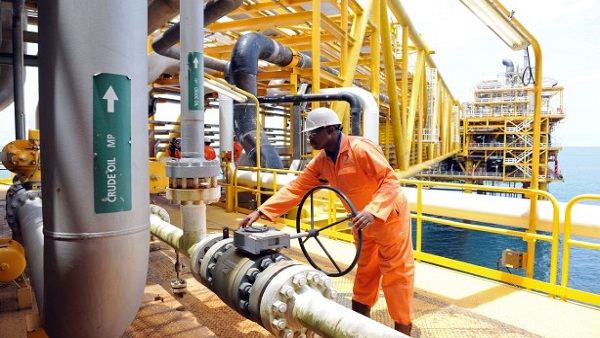Nigeria aims to legalize illicit oil refineries in the turbulent Niger Delta region, the vice-president’s office said on Thursday, hoping to bring peace to the production heartland for the crude on which the country relies.
If the refineries are legalized, it could help soothe tensions in the Delta states, where an uneasy peace is now being kept as the government holds talks with local communities, including militants whose attacks cut oil production by as much as a third last year.
Nigeria’s government depends on oil sales for around two-thirds of its revenue.
“Under the plan that is being developed, communities would come together working with their respective state governments, the federal government and private sector operators to work out a template for the establishment of modular refineries in the communities,” said the statement from the vice-presidency.
The legalized refineries must be structured “in a way that works for business or structure it in a way that is realistic and works, otherwise it would not last … it is a business proposition first and foremost, it must make sense,” said Vice-President Yemi Osinbajo, according to the statement.
The bush refineries, which support tens of thousands of people locally, are makeshift, blackened structures of pipes and metal tanks hidden in oil-soaked clearings, processing stolen crude from oil company pipelines.
Their legalization is one of the main demands of community leaders in talks with the government.
A security crackdown has risked driving hundreds of young men from the refineries into the militant groups that have been attacking legitimate oil facilities in an attempt to force the government to allocate more money to the impoverished region.
“We are saying there is a way out of violent agitation, but it is by creating opportunities and the environment where the people in the communities can benefit,” Osinbajo said, according to the statement.
Source: Reuters



